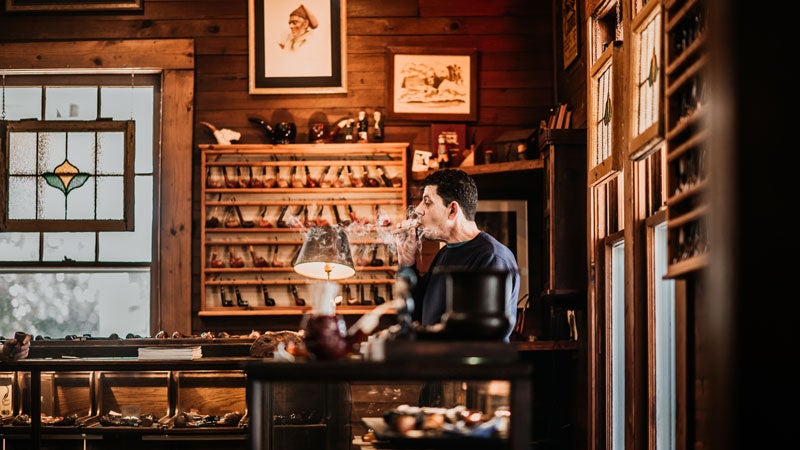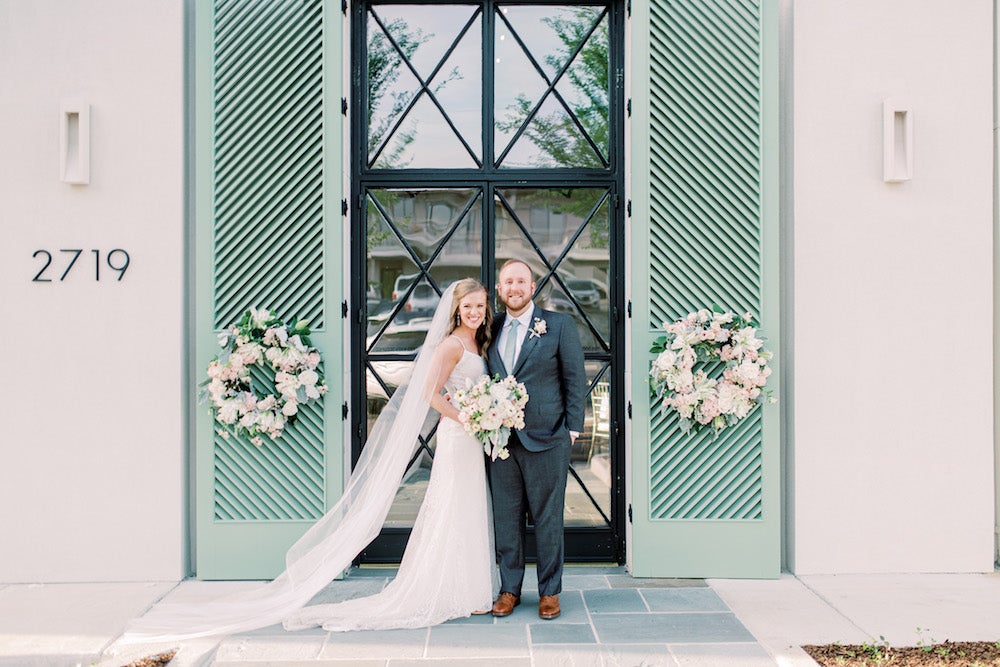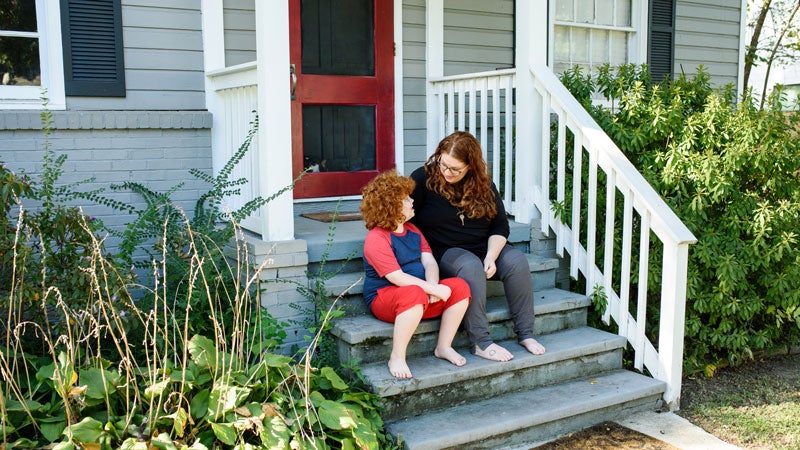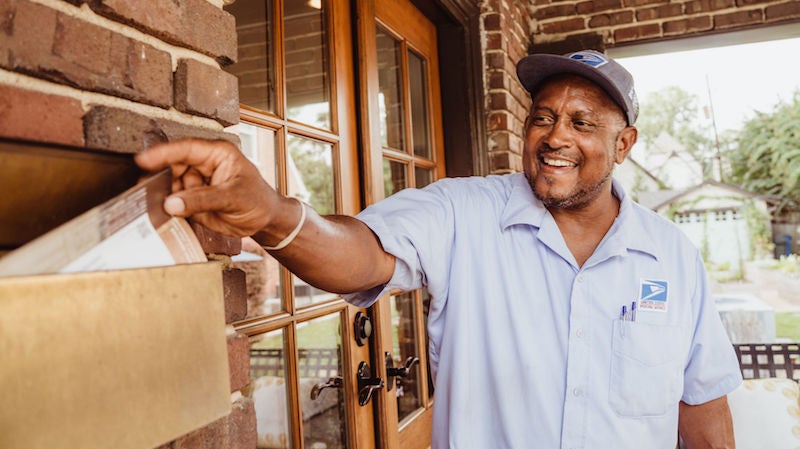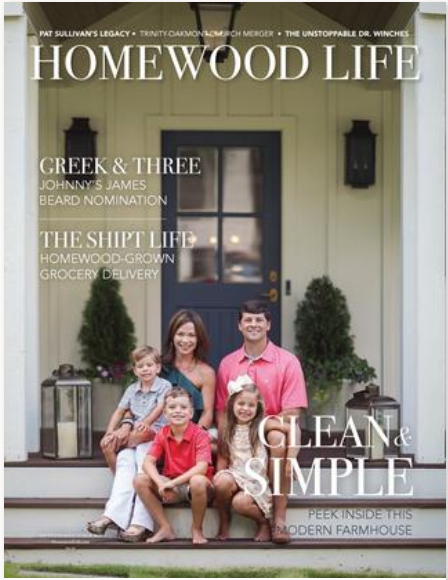Once upon a time men smoked pipes. You’ve seen pictures. Wool sweaters, tweed jackets, patches on the elbows. Think Hemingway. Mark Twain. Sherlock Holmes. In the 1920s, university fraternities used to give potential pledges pipes as a way to recruit them, so they could all sit around thinking deep thoughts, and puffing languidly, apparently. And make no mistake, sitting around together was a big part of it. And still is today. Drop by The Briary in Homewood, and it’s like taking a journey into Man’s Land, taking a peek behind the curtain.
Women have salons, and sure, men still have barbershops. But the pace is too fast. You could never smoke a pipe in a barbershop. For one thing it’s probably illegal, but for another, smoking a pipe takes time. It is not a quick tobacco fix. It, too, is a journey, beginning with selecting a pipe, a tobacco blend, tamping it down just right in the bowl—three times, usually—and then the lighting, best done with a special lighter so that you don’t burn your fingers. And then you can’t puff it too quickly, or it will get too hot and not burn properly. It goes puff, pause, talk, think, maybe puff again. But neither the ritual itself nor the hundreds of tobacco blends the store sells is where the magic is at The Briary.
The magic is in the smoking room: three dark leather couches in a room off to the side, with wood plank walls, ceiling and floor. There’s a TV used on game days next to a coat rack holding a jacket and a New York Yankees cap that have been there so long no one can remember who they belong to. But there they remain, like everyone’s just waiting for an old friend to walk back in the door and take a seat.
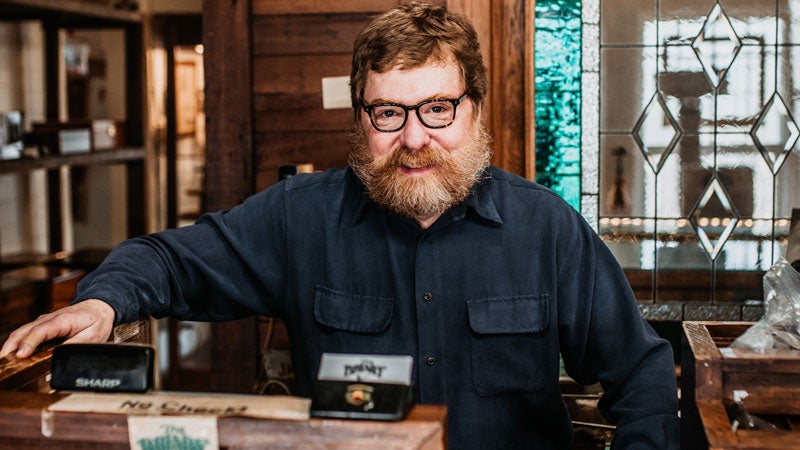
The Briary Owner Skip Elliott
The eclectic photographs and artwork on the walls certainly invite conversation. There’s everything from a Hawaiian petroglyph to a photo of a Confederate soldier (owner Skip Elliot’s great-grandfather who was conscripted into service in North Carolina) framed with actual Confederate money. It’s history, Skip says, not an endorsement of either side. On the opposite wall hangs a photo of an American soldier in Afghanistan smoking a pipe. Turns out the soldier’s friend came in one day wanting to put together a care package for his buddy in the Army. Skip gave him the pipe, with the caveat that he wanted to see a picture of the soldier smoking it in Afghanistan. So when the photo arrived, up it went on the wall.
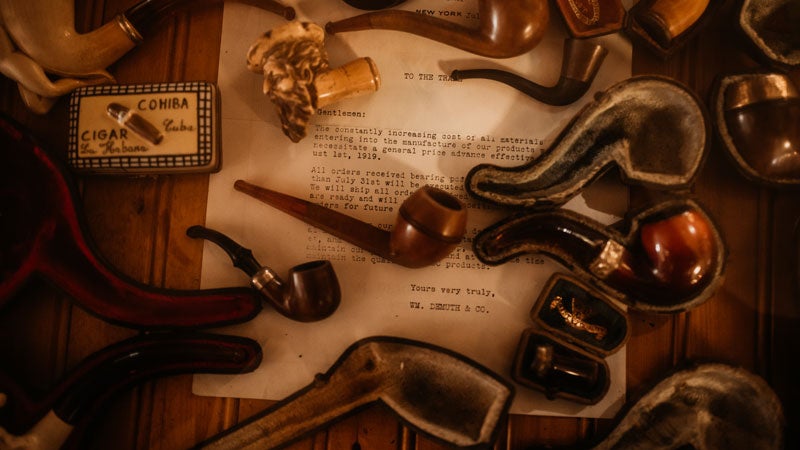 On this random weekday morning, Michael Fierman is perched at one end of a couch, balancing a laptop on his thighs. Michael works for a drug and alcohol treatment center and spends his days visiting therapists, treatment centers and interventions, so The Briary has become his mobile office. He says there’s a regular crew here by 10 most mornings. So regular, he says with a chuckle, “We’ve discussed putting a clock-in station.”
On this random weekday morning, Michael Fierman is perched at one end of a couch, balancing a laptop on his thighs. Michael works for a drug and alcohol treatment center and spends his days visiting therapists, treatment centers and interventions, so The Briary has become his mobile office. He says there’s a regular crew here by 10 most mornings. So regular, he says with a chuckle, “We’ve discussed putting a clock-in station.”
Almost on cue, in walks Warren Wynn, who retired last year and seems to have traded reporting to work each day for reporting to The Briary. (Though he says he also visits the gym and works on home projects.) “There’s a lot of really great people who come in here,” he says. “A lot of college students, tenured professors.” He jokes that the professors hang around hoping someone brought in some booze.
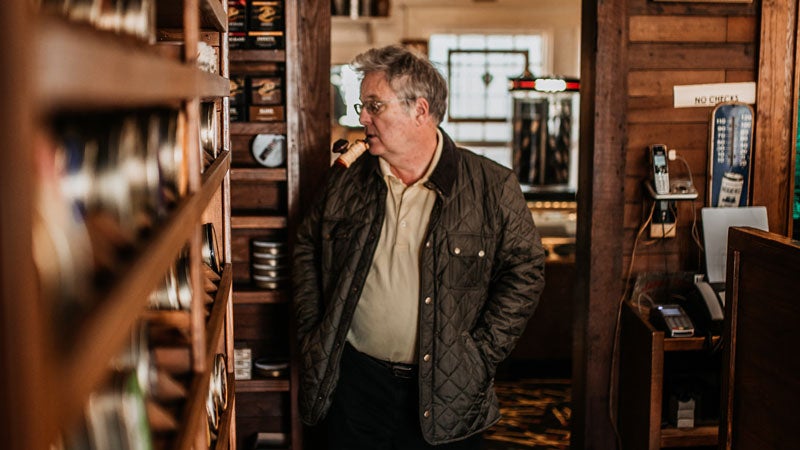 On this particular morning it’s Warren who has brought in a little bourbon, which he sips slower than he smokes. And he says he only smokes when he’s here, an amount that adds up to just two to three pipe bowls of tobacco a week. “This is how I control it,” he says. “You gotta do it in moderation.”
On this particular morning it’s Warren who has brought in a little bourbon, which he sips slower than he smokes. And he says he only smokes when he’s here, an amount that adds up to just two to three pipe bowls of tobacco a week. “This is how I control it,” he says. “You gotta do it in moderation.”
I ask why they hang out here, why not a bar, for example. “Bar people aren’t that interesting,” he quips. He seems particularly fond of an anatomy professor at UAB who likes to play chess and may or not have recently beaten a former Auburn football player, who’s also a regular here. Warren hears the front door open, and his eyes light up. “Is that Barger?” he yells, and a chorus of “Barger!” rises up. The anatomy professor from UAB has arrived and, hailed appropriately, settles in to a seat before lighting up and holding court.
It’s clear they are not just here for the tobacco, although The Briary sells hundreds of blends of tobacco, has a room-sized humidor for cigars and gorgeous handmade pipes that look like works of art and sell for as much as $1,400. (Skip Elliott even makes handmade pipes, the kind that land in glossy magazine photos.) No, the men are here because owner Skip (Albert Augustus Elliott, III, if you want to get formal about it) has created a place where people find a home. Even Pat the Cat, a stray who smelled chicken fingers and wandered up onto the porch one day two years ago, decided to stay. (She was given the androgynous name Pat because they named her before a trip to the vet could confirm whether she’s a boy or girl.) Pat has the run of the place and isn’t shy about plopping herself into new friends’ laps.
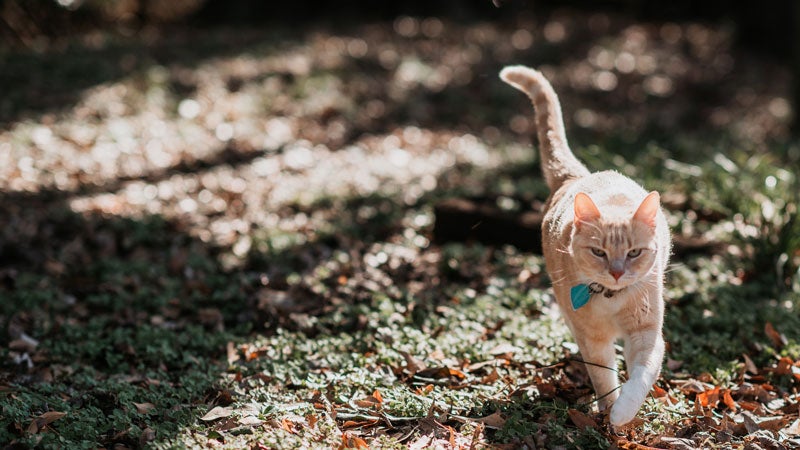 The Briary hasn’t always been in its current location. It got its start in 1974 as Skip’s father’s store in Brookwood Mall, part of The Tinder Box franchise. Skip started working there at the age of 21 and bought the business from his father when he retired in 1984. Skip left the franchise in ‘89, and the mall in 2000, after seeing the current location’s 1899 farmhouse and its expansive front porch in West Homewood. He knew it was perfect for what he wanted. The name, “The Briary,” by the way, reflects the term “briar,” which is a type of wood favored in making pipes because it has a high heat tolerance.
The Briary hasn’t always been in its current location. It got its start in 1974 as Skip’s father’s store in Brookwood Mall, part of The Tinder Box franchise. Skip started working there at the age of 21 and bought the business from his father when he retired in 1984. Skip left the franchise in ‘89, and the mall in 2000, after seeing the current location’s 1899 farmhouse and its expansive front porch in West Homewood. He knew it was perfect for what he wanted. The name, “The Briary,” by the way, reflects the term “briar,” which is a type of wood favored in making pipes because it has a high heat tolerance.
Tolerance abounds at The Briary, where patrons make themselves at home and regulars are allowed to slip into the back kitchen when they need to make a private phone call. “People get very involved,” Skip says. Like they have a stake in this place. “One guy comes in every afternoon and cleans things,” he says. Another guy likes hot tea, and when Skip’s coffee maker quit working, he kept forgetting to buy a new one (because he doesn’t drink coffee) so the tea-drinking guy finally just brought one in. “People who don’t even smoke come here,” he says.
The only thing missing from The Briary is someone named Bob. There’s a sign above the smoking room doorway, simply reading “Bob’s room.” Turns out, Bob was an attorney who showed up at 11 a.m. every day. “He had his own spot,” Skip says, pointing to the end of the couch we’re sitting on. “Everybody went to him with his problems,” he says. And he helped them. But when alcohol began to overtake his own life, Skip says Bob didn’t have that person to help him. “That’s what Bob’s room is about.”
It’s a brotherhood, forged not in blood, and maybe not even in tobacco, but simply the shared experience of being boys who grew up and still need a clubhouse.
The Briary is located at 609 Oak Grove Road in West Homewood. To learn more, visit thebriary.com.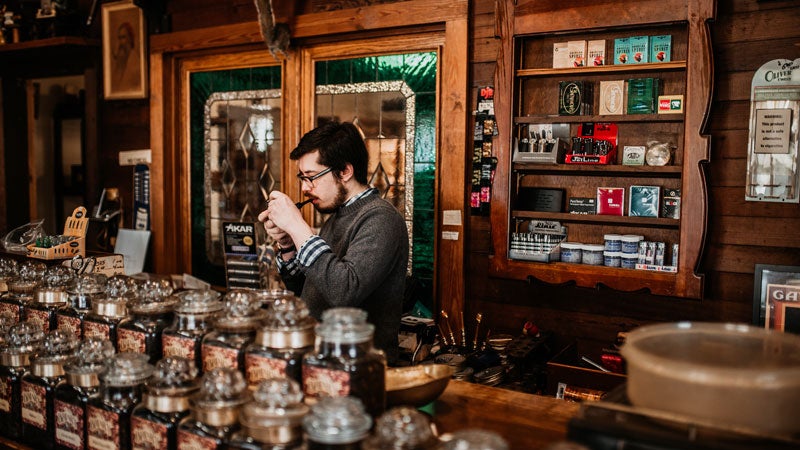
Meet Aubrey Rush
Age: 25
(Self-imposed) Job Title: Greatest Tobacconist in the Country
What is a tobacconist?
The big deal about a tobacconist is you get to taste several different tobaccos. It’s all about knowing how to blend and find the mixtures that people want. Asking a few people a couple questions on what they like to taste I can find whatever tobacco they want.
How great is your palate?
If it’s a Virginia blend, I can tell you what field it’s from.
How old were you when you smoked your first tobacco?
I stole one of my uncle’s cigars when I was a kid (11). I hated it then. Like all kids, it made me sick.
What makes smoking a pipe different from a cigarette or a cigar?
When you’re smoking cigarettes, you’re getting a quick nicotine fix. You’re not trying to taste the tobacco. Pipe tobacco is more like tasting wine. You want to taste the different places, the different blends, different leaves. You want to taste all of that. And developing that palate is one of the big things for pipe tobacco. A cigar is more of a social thing. While you’re still tasting the blends and everything, more people smoke cigars when they get together and have a celebration and things like that.
How long does it take to smoke a pipe bowl?
Your average bowl takes about 30 to 40 minutes. It’s more the meditative period. You’re taking time in your day to slow down.
How does this job compare to your last one, where you fired people for a jewelry company?
I get paid to be cool and smoke. My father told me I’d never get paid to do nothing, but he was dead wrong.

